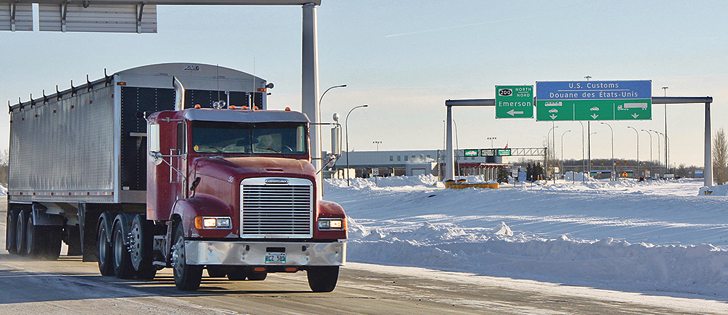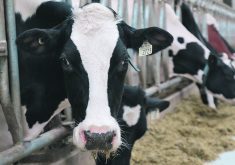Dozens of American food companies and an even larger number of agricultural associations made their voices heard this week: they want the U.S. to remain in the North American Free Trade Agreement.
On Nov. 14, a group of 168 commodity groups, farm associations and Fortune 500 companies such as CHS, Cargill and John Deere sent letters to governors of every U.S. state.
The letter urged the governors to lobby U.S. President Donald Trump and remind him of the importance of NAFTA.
It also said that a withdrawal from NAFTA would result in “substantial harm” to the U.S. economy and American farmers.
Read Also

Feds propose overhaul of chronic wasting disease control program
Chronic Wasting disease control program getting updated by Canadian Food Inspection Agency with feedback encouraged from producers.
“Such a notice of withdrawal would fuel additional uncertainty among our North American trading partners, creating a sense of urgency to explore non-U.S.-origin sources of supply,” the letter said.
“Contracts would be renegotiated or cancelled, sales would be delayed or lost altogether, able foreign competitors would rush to seize our export markets, and litigation would abound even before withdrawal took effect.”
The letter is a sign that America’s agri-food sector, which supports more than 22 million jobs, is frustrated by Trump’s continued threats to withdraw from NAFTA.
Representatives of Canada, Mexico and the U.S. are meeting this week for the next round of NAFTA negotiations.
The three countries began formal talks to update and modernize NAFTA in August because President Trump promised to rip up or renegotiate the deal during his 2016 campaign.
A number of analysts are concerned the U.S. is on track to terminate NAFTA because American negotiators have put forward proposals that are untenable for Canada and Mexico. For example, the U.S. has proposed changing rules of origin around automobile manufacturing so half of all content comes from the United States.
In the letter, the group said that ripping up NAFTA would trigger massive job and economic losses. The U.S. exports about $43 billion in food and agricultural commodities annually to Canada and Mexico.
“(It’s) a net loss of at least 50,000 jobs in the U.S. food and agriculture industry, and a drop in GDP of $13 billion from the farm sector alone,” it said.
“NAFTA withdrawal would also disrupt critical industry supply chains, close markets, eliminate jobs, and increase prices for the basic needs of American consumers.”
The letter also provides detail of the value of NAFTA to specific U.S. industries, including corn, pork and fresh fruits and vegetables.
“Since 1993, fruit and vegetable exports from U.S. to Mexico and Canada have more than tripled, reaching $7.2 billion.”
The letter is encouraging news for leaders of Canada’s agri-food industry, who have been waiting for their U.S. counterparts to exert more pressure on the Trump administration.
The fifth round of re-negotiations around NAFTA began today in Mexico City.
Contact robert.arnason@producer.com
















